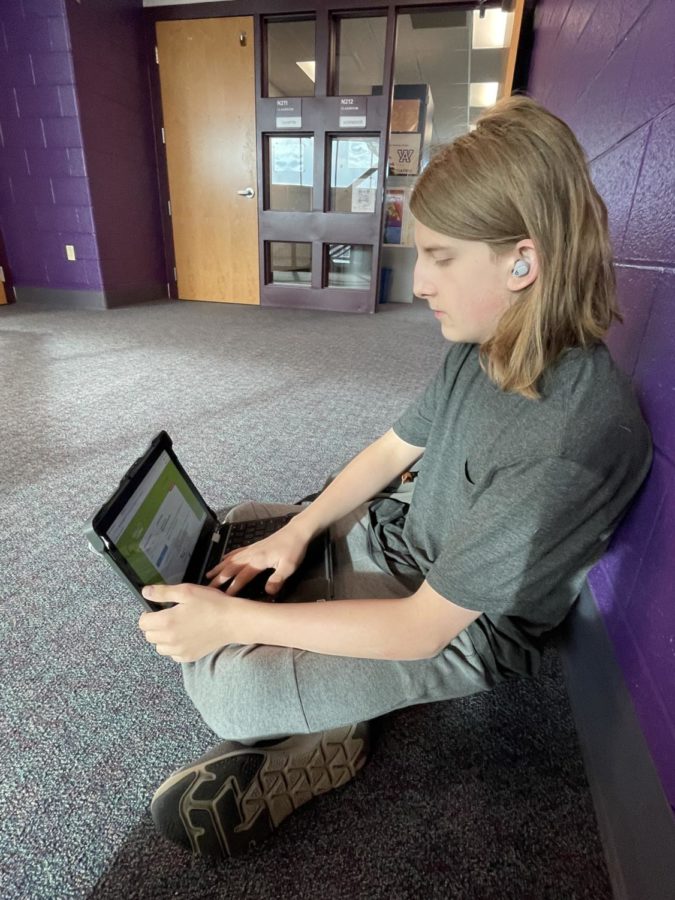Being allowed to listen to tunes is music to students’ ears, but should they be allowed to listen during class?
Music can benefit students in the classroom. It can also hinder their ability to learn.
According to the U.S. Department of Education, exposure and indulgence in music can “improve learning and increase positive classroom atmosphere, and “impact the way that the brain processes information, enhancing the perception of language and speech, and subsequently improving our ability to communicate with others and learn to read.” In addition, “several studies have suggested that experiencing calming music can reduce aggressive behavior and feelings of anxiety and stress.”
Study.com provides a list of benefits of listening to music in the classroom, sharing:
- Music that is soothing and relaxing can help students to beat stress or anxiety while studying.
- Background music may improve focus on a task by providing motivation and improving mood. During long study sessions, music can aid endurance.
- In some cases, students have found that music helps them with memorization, likely by creating a positive mood, which indirectly boosts memory formation.
Nancy Barile, award-winning teacher with a masters in education, states “Studies have revealed that listening to music leads to positive changes in mood, as well as increased creativity.”
University of the People cites improved mood, increased motivation, pain management, improved memory, eased stress, and more as benefits of listening to music.
With all the evidence praising music and the impact it has on students, it may be surprising why allowing tunes in school hasn’t gained more traction. That is, until one sees the flip side. In the same post, Barile shares “Research offers little to back up the idea that listening to music improves concentration.”
University of the People states that while music can be beneficial for some people, for others, “studying with music may feel distracting.”
The U.S. Department of Education, also in the same article, points out how “music can negatively affect cognitive performance on certain, complex tasks” before jumping into the benefits of music.
Where do these conflicting reports intersect? What conclusion do they come to? One thing that stands out is how music can be beneficial at one moment and harmful the next. The parameters that define this fine line students seem to walk while listening to tunes correlates to something most studies seem to agree on: listening to music while studying or working independently, whether it be in class or at home, is shown to improve academic performance and help students relax. Meanwhile, listening to music while working on a specific, complicated assignment or an individualized task can lead to a loss of concentration, leading to a lack of production.
Researchers can point to reports and data all day, but students have options that may be even more valuable. According to a poll conducted of 440 Arvada West students, many agreed on the benefits of listening to music during class, as well as their desire to do so.
More specifically, students were polled on four questions. They were first asked “Do you listen to music while studying/working independently?” 90.5% of survey respondents answered yes, with around 4.8% of students responding no, and the remaining 4.7% answering with some form of “sometimes.”
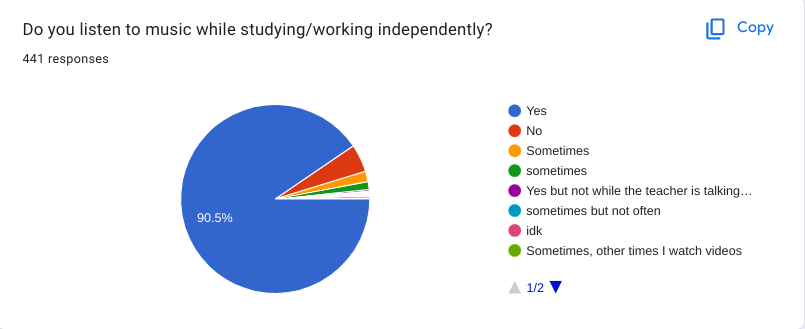
The survey then asked students if they would listen to music during class if they were allowed to, with 88.7% answering yes, 6.3% saying no, and the remaining 5% answering “sometimes” in some way, shape, or form.
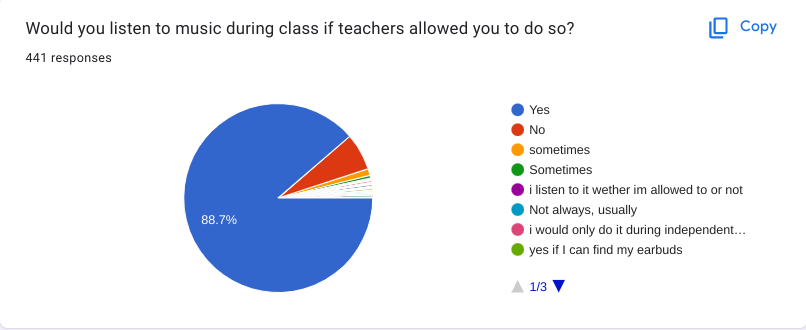
The next question read “Does listening to music increase your productivity.” The results differed slightly from the previous questions, with 82.5% of students saying yes, 7.9% responding no, and 9.6% writing “sometimes.”
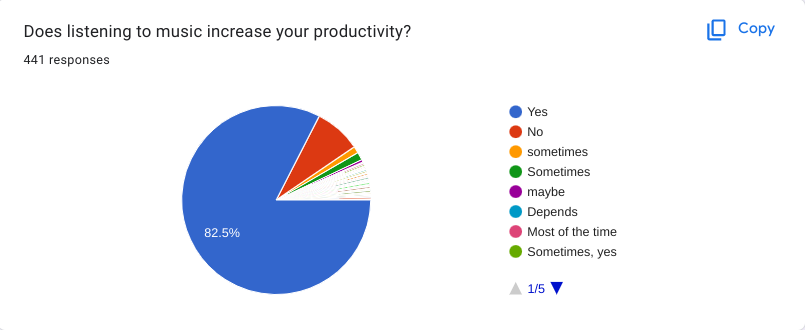
The survey concludes by asking the respondents if listening to music helps them find motivation to do work. The results remained fairly consistent with the first two questions, with 88.2% of students responding with yes, 6.8% saying no, and the remaining 5% replying with “sometimes.”
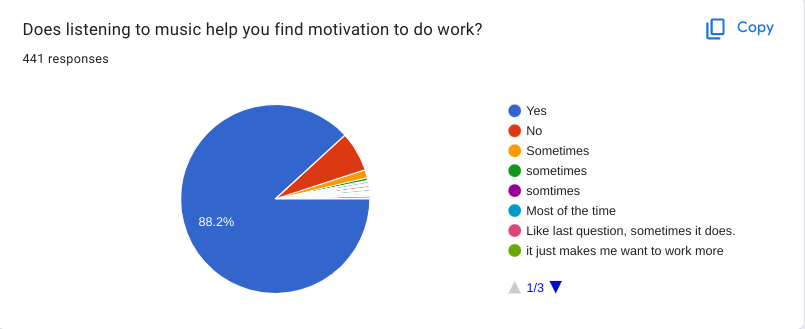
While the data shows that students are overwhelmingly in support of music in the classroom, teachers also have important opinions on the topic at hand. Michael Villanueva, who teaches social studies at Arvada West, shares “typically I always have music going.” He adds that “It makes me comfortable, I know it makes other people comfortable.”
Villanueva’s answers are fairly consistent with students who responded “other.” He lets students listen to their own music, save for when they are obviously distracted, stating “It’s a good stimulus for certain people, and I think it depends on the specific person. For some people, they need that mental stimulus to occupy a certain part of that brain.” However, “For those people who really are getting into their own music, it’s a distraction and it’s something that because they’re so focused on intricate things beyond having music as a white noise, it distracts from challenging, mentally demanding things.”
Whether it be Adele, Kendrick Lamar, or The Beatles, music can be tempting. Even without permission, many students will attempt to listen to tunes, and with headphones, air pods, and other listening devices abundant, they have many ways of doing so. Arvada West staff and administration may continue to resist, but the majority of students who are in support of music in the classroom are sure to make their voices heard.

Madeus Frandina is a Junior at A-West who loves anything involving literature and plays soccer. He is a huge Liverpool FC and Carolina Panthers fan, and...


